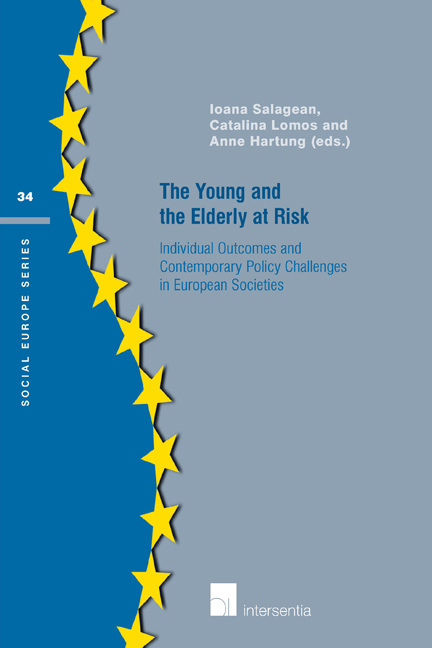 The Young and the Elderly at Risk
The Young and the Elderly at Risk Published online by Cambridge University Press: 13 December 2017
ABSTRACT
This examines how ethnic capital, operationalised as the percentage of parent's friends and colleagues who are co-ethnic and the language spoken between parents and children, shapes educational outcomes of immigrant and native-born individuals with Turkish backgrounds and how its effect differs in Germany, the Netherlands and France. T e results show that when parents have a high percentage of co-ethnic colleagues, this has no clear effect on educational outcomes of their children, while having a high number of co-ethnic friends and speaking the language of the sending country at home decrease the children's chances of higher educational outcomes. This effect is greatest in Germany where late starting age of schooling and early age of tracking are two main features of the educational system. The study contributes to the literature by investigating educational outcomes in relation to ethnic capital, taking a comparative approach and using unique data. It rules out origin effects by comparing the same migrant group with similar origin country features across countries.
Keywords: migration, ethnic capital, educational outcomes, assimilation
INTRODUCTION
The educational outcome of individuals with an immigrant background is an important topic in migration studies (Portes, 2000; Hirschman, 2001; Phalet et al., 2007). Some research shows ethnic capital, conceptualised as social capital within ethnic communities, may contribute to the success of such persons (Portes & Zhou, 1993). However, other research offers empirical evidence that strong ethnic capital does not necessarily lead to either higher educational outcomes (Waters et al., 2010; Fleischmann et al., 2013) or better labour market outcomes (Battu et al., 2004; Lancee, 2010; Phalet & Heath, 2011; Kalter, 2011).
This seeks to determine whether ethnic capital contributes to the educational outcomes of 1.5 (born abroad but raised/educated in the receiving country) and subsequent generations of Turkish immigrants in Germany, the Netherlands and France. Here, ethnic capital comprises Turkish friends of parent; Turkish colleagues of parent; and the language spoken between parents and those investigated. The poses the following research questions:
– To what extent does having a parent with stronger ties to the ethnic community, namely more Turkish friends and colleagues, decrease the chances of better educational outcomes for 1.5 and subsequent generation Turks in Germany, the Netherlands, and France?
To save this book to your Kindle, first ensure [email protected] is added to your Approved Personal Document E-mail List under your Personal Document Settings on the Manage Your Content and Devices page of your Amazon account. Then enter the ‘name’ part of your Kindle email address below. Find out more about saving to your Kindle.
Note you can select to save to either the @free.kindle.com or @kindle.com variations. ‘@free.kindle.com’ emails are free but can only be saved to your device when it is connected to wi-fi. ‘@kindle.com’ emails can be delivered even when you are not connected to wi-fi, but note that service fees apply.
Find out more about the Kindle Personal Document Service.
To save content items to your account, please confirm that you agree to abide by our usage policies. If this is the first time you use this feature, you will be asked to authorise Cambridge Core to connect with your account. Find out more about saving content to Dropbox.
To save content items to your account, please confirm that you agree to abide by our usage policies. If this is the first time you use this feature, you will be asked to authorise Cambridge Core to connect with your account. Find out more about saving content to Google Drive.